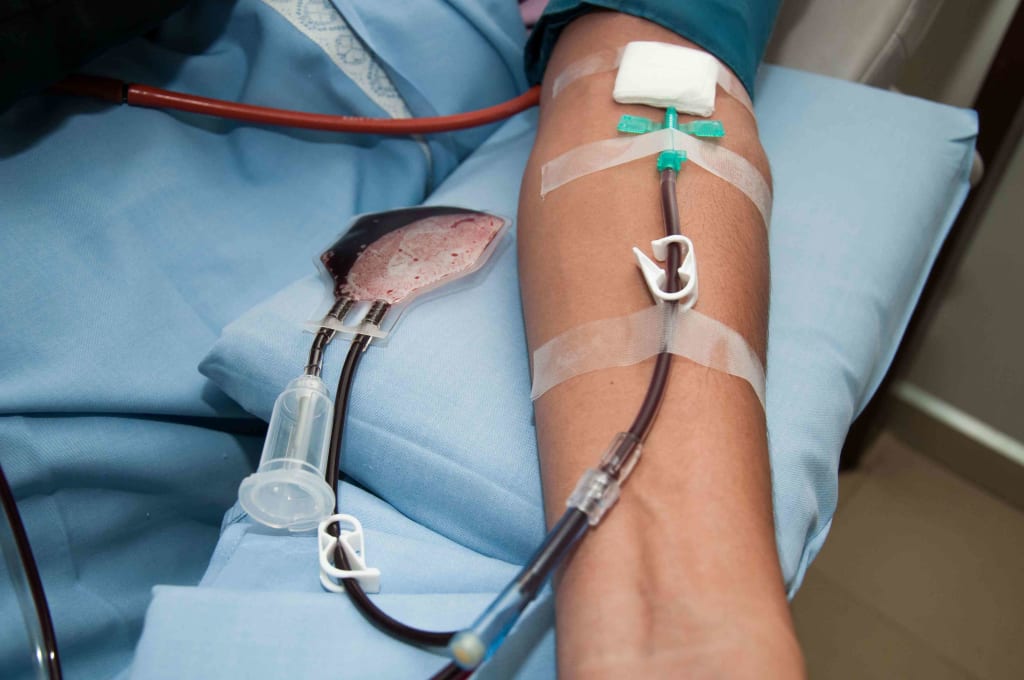
A new medicine has been developed to help cancer patients living with a rare disease which attacks the body’s own organs following a life saving stem cell transplant. Belumosudil is a pioneering new treatment for chronic graft versus host disease. This develops in around a third of patients who have undergone stem cell treatment to try and cure them of any cancerous infection they may be suffering from. It has also been found useful for people who undergo bone marrow transplants or who suffer from such blood cancers like leukaemia and lymphoma.
Statistics show that just over a thousand patients undergo a stem cell or bone marrow transplant in the UK each year. However, around four hundred patients who receive treatments for such cancers then go on to develop serious complications in which white blood cells in the donated tissue they receive then go on to attack the recipients organs. This in turn goes on to weaken the patients immune systems which makes them more vulnerable to a host of other diseases.
The condition usually occurs with in the first year of a patient receiving a transplant, is usually quite mild but can be fatal in a tenth of cases. This makes it extremely difficult to find the right treatment for different patients as each case can be unique and have a variety of different symptoms. Typical symptoms usually include inflammation and damage to vital organs such as the lungs and liver. Having a weakened immune system also means that patients are more vulnerable to other chronic infections which can develop as a result of any treatments they may under go.
For around half of patients with chronic graft versus host disease, their condition will not respond to currently available treatments such as Pentostatin (a chemotherapy drug), Rituximab (antibody treatment) and imatinib (a targeted therapy)
Around 200 patients living with the most severe cases of the disease and who have not had success with two previous therapies are now set to benefit from Belumosudil over the next three years, after the NHS fast-tracked funding for the treatment following clinical guidance from the National Institute of Health and Care Excellence (NICE).
The new treatment which has developed includes a patient receiving a tablet once a day and works by inhibiting the proteins which are responsible for the potentially dangerous inflammatory response which is usually caused by the chronic graft versus host disease. The treatment can be taken at home so this puts less strain on NHS services and frees up beds for patients who may have other more serious conditions which require urgent treatment. This helps the Health Service run more smoothly and helps to create a better functioning community in which only those who require hospitalisation take up the beds on offer.
In clinical trials using Belumosudil to treat chronic graft versus host disease, up to three quarters of patients responded to therapy and this was most effective for treating disease affecting the mouth, intestine or joints.
The NHS England announcement comes on Rare Disease Day (29 February), which aims to highlight the more than 7,000 rare diseases that around 3.5 million people across the UK live with.
Dan Yeates, a 31-year-old from South West London, was diagnosed with acute lymphoblastic leukaemia in January 2020, and following a stem cell transplant in June 2020, developed chronic graft versus host disease.
He said: “I have chronic graft versus host disease in my eyes, skin, gut and lungs, and it severely impacts my quality of life. After my stem cell transplant, it has been an incredibly hard journey, both physically and mentally.
“This announcement signals a massive quality of life improvement for many people like me. Now, it is such a relief to know that if my disease progresses, there will be a treatment available to me to take at home.”
NHS England’s Medical Director for Specialised Services, James Palmer, said: “This roll-out is a real breakthrough for patients with graft versus host disease and it will help people living with this debilitating condition effectively manage their symptoms and enhance their quality of life and daily functioning.
“It’s great news that the NHS has been able to fast track funding for a treatment which will have a significant impact for hundreds of patients over the coming years.”
Professor Adrian Bloor, a Consultant Haematologist at The Christie NHS Foundation Trust, said: “The rapid roll-out of Belumosudil provides hope for patients living with chronic graft versus host disease, and signals a major step forward in addressing the often-debilitating consequences of the disease. Although Belumosudil has only been available for a short time, it is already demonstrating a transformative benefit for patients under my care.”
Dr Robert Danby, Chief Medical and Scientific Officer at Anthony Nolan, the stem cell transplant charity, said: “We know from our patients only too well the devastating effect chronic graft versus host disease can have on a person’s physical and mental health.
“This is welcome news for stem cell transplant recipients across England and Wales who struggle with this debilitating, life-threatening condition. We are investing in vital research to help even more patients survive and thrive after a stem cell transplant.”